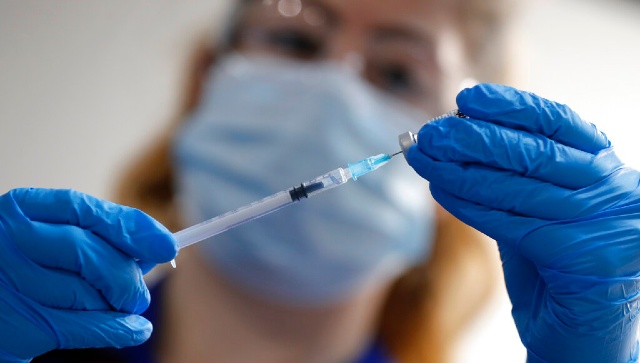With many vaccine candidates announcing their efficacy, the hope that the COVID-19 pandemic might end soon is emerging again. However, there are several steps in the process that still need to be evaluated and then implemented. Studies are already highlighting the fact that simply because a vaccine candidate has high efficacy does not mean that releasing it will automatically spell the end of the pandemic. On the contrary, structural challenges involving storing logistics, distribution and rising infection rates matter just as much as vaccine efficacy. And then there’s the prickly subject of human challenge trials for vaccine candidates with high efficacy too. Why human challenge trials are needed It was as early as in April 2020 that a study in the Journal of Infectious Diseases proposed a model for human challenge trials and sparked a global controversy that’s still unresolved. Human challenge trials are conducted on healthy individuals who are deliberately infected with a disease. If that’s not alarming enough, vaccine candidates are then tried on these previously-healthy individuals to see if they work as their trial results promise. Now, this may sound frightening, but human challenge trials are highly controlled, standardised and only done when the initial phases of a clinical trial — which involves testing the safety and efficacy of the vaccine over a period of time — are done and the need for the final (third) phase needs to be eliminated or sped up. The reason why human challenge trials are being considered for COVID-19 vaccines is simply dictated by the fact that this infectious disease is proving to be very difficult to control and mass vaccination, sooner rather than later, can ease the pressure the global healthcare system has been under for almost a year now. A study published in The Lancet Respiratory Medicine in October 2020 states that human challenge trials are set to begin in the UK in January 2021 and will be held in a high-level isolation unit or the Royal Free Hospital, London. In the first phase, 90 healthy young people aged 18 to 30 years will be infected with the SARS-CoV-2 virus to identify the smallest amount of virus it takes to cause infection. In the second phase, a selected vaccine candidate or a placebo will be given to the participants, and their health status will be constantly monitored to identify infection prevention and side effects. Ethical concerns over human challenge trials However, even as these trials are set to begin, ethical concerns regarding the same are emerging again. A new study published in the Journal of Medicine and Philosophy evaluates these ethical dilemmas surrounding human challenge trials. The study starts out by highlighting the three reported benefits of holding these trials:
- They will considerably speed up the availability of effective vaccines and possibly save millions of lives from suffering due to the disease.
- They are likely to subject the volunteers to just about 1 percent chance of hospitalization and 0.03 percent or less risk of death — which are extremely low-risk factors than those faced by patients who are becoming severely or critically ill every day.
- These benefits of the trials far outweigh the risks or moral concerns involved and cannot be avoided if a fast-spreading infectious disease is to be controlled quickly.
One major argument against the human challenge trials is that it’s ethically wrong to expose volunteers to this process unless it’s therapeutically beneficial for them, which is not the case here since these trials would require the volunteers to be infected with the virus without any vaccine. The study points out that this concern is mistaken since the associated risk of harm is very low and the overall benefits for the global population very high. Another ethical view stipulates that it’s never right to intentionally harm innocent people. But the study counters this by saying that this would put many other medical practices like organ transplant from live donors under questionable light. Once again, it is believed that the benefits of doing such procedures and trials outweigh the risks and ethical dilemmas. The study also highlights that if these human challenge trials claim the life of even a single volunteer, then not only would it shake the public’s confidence in medical research but also prove these ethical concerns right. It’s therefore important to conduct these trials within highly-controlled parameters that ensure the safety of the volunteers while garnering all the benefits these trials have to offer. However, the study concludes that unless there are negative outcomes, most of the ethical concerns raised about the human challenge trials do not hold up to scrutiny, especially where benefits for millions of people are concerned. For more information, read our article on Why is it taking so long to develop a COVID-19 vaccine? Health articles in Firstpost are written by myUpchar.com, India’s first and biggest resource for verified medical information. At myUpchar, researchers and journalists work with doctors to bring you information on all things health.


)

)
)
)
)
)
)
)
)



